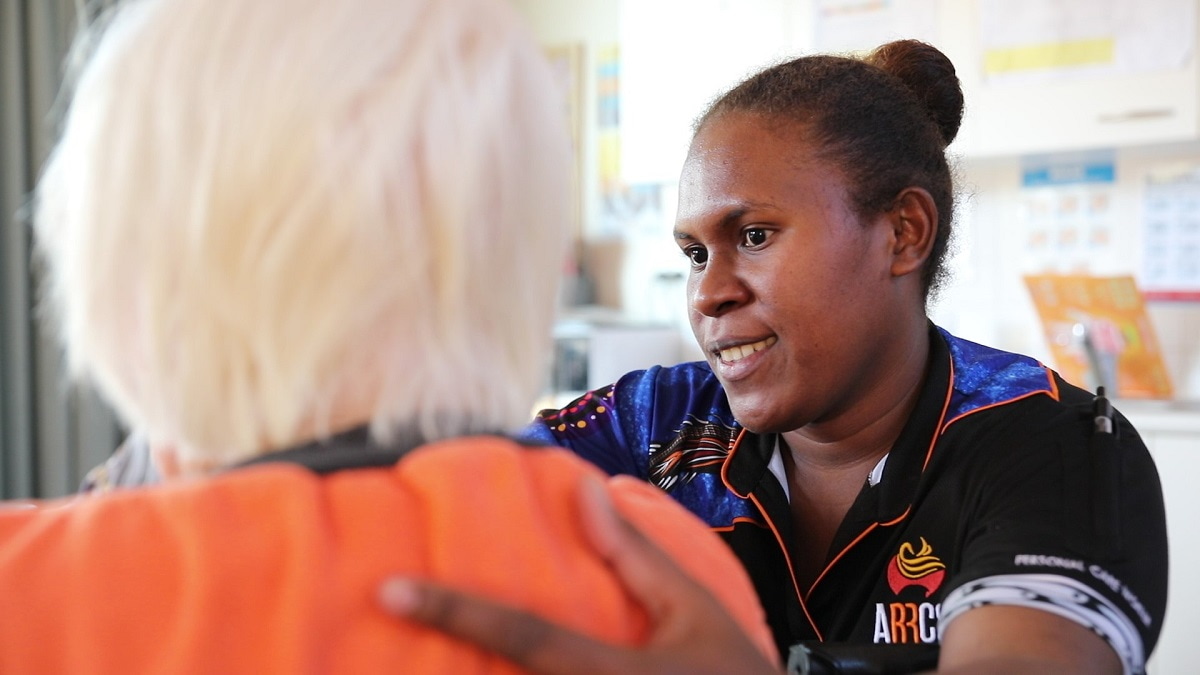At a press conference in Tonga last week, Australia’s Minister for International Development and the Pacific, Pat Conroy, was quick to defend the Pacific Australia Labour Mobility (PALM) scheme when a journalist noted that some had labelled it as “modern-day slavery”. A week earlier, the family of deceased Fijian PALM worker Christine Lewailagi had equated exploitation of PALM workers to modern slavery. Last month, the UN Special Rapporteur on contemporary forms of slavery, reviewing similar temporary and seasonal migration programs in Canada, noted that they serve as a “breeding ground for contemporary forms of slavery”.
To flag exploitation risks is not to say that these programs must be abolished. Rather, it is to highlight the inherent vulnerabilities that temporary migrant workers face in low-wage sectors such as agriculture and meat processing, which cause some to become trapped in exploitative situations. We can improve, by getting the visa and protection settings right – I argue, by giving migrant workers exit options, voice and a social safety net.
As a country, Australia may not acknowledge that it relies on low-wage migrants, but our economy couldn’t run without them.
A power imbalance between worker and employer
As a country, Australia may not acknowledge that it relies on low-wage migrants, but our economy couldn’t run without them. They are the fruit pickers and abattoir workers who enable us to put food on the table, the rural bar staff that hold up the regional tourism industry and – increasingly – the care workers that support our loved ones to age with dignity. Yet whether we talk of the heavily-regulated PALM scheme or the lightly-regulated Working Holiday Maker Program, we see that workers are sometimes subject to sexual harassment and gender-based violence, dangerous working conditions, racism and medical risks such as pregnancies without medical care. Many of the 31,950 PALM workers, and around 51,000 backpackers in food production (according to a Jobs and Skills Australia estimate) have a positive migration experience. However, where issues occur, they are not isolated incidents but part of a broader pattern of vulnerability which, when exploited, can give rise to forced labour, deceptive recruiting, debt bondage and in some cases even sexual servitude and labour trafficking – all modern slavery offences under the Commonwealth Criminal Code, and in NSW the Modern Slavery Act 2018 (NSW).

Agriculture work often takes place in remote farms and factories where enforcement of laws is hard. There is a high prevalence of workers recruited through labour hire companies that, in many States, still lack effective regulation. PALM workers and backpackers in the sector are more likely to be young, non-English speakers, and (in the case of backpackers) disproportionately women, vis-à-vis similarly employed Australians in the sector. Given the power imbalance between such workers and their employers, it is no wonder that most never report their exploitation, making complaint-based inspections by federal agencies largely ineffective.
Why exit and voice are important
The concepts of “exit” and “voice” were first introduced by economist Albert Hirschman in 1970. Applied to migrant worker protection, exit is migrants’ ability to leave exploitative employers or work environments without fear of retaliation or restrictive conditions. Voice empowers migrants to report abuses, seek recourse, and advocate for improved conditions without fear of deportation or job loss. Together, these mechanisms are crucial for preventing exploitation and to ensure a balance of power between employers and employees.
In Australia, migrant workers’ voice has been given an enormous boost through the introduction of the workplace justice visa and protection against visa cancellation.
Some countries have made impressive strides in one or the other, but often not both, when it comes to protecting the rights of low-wage migrants. In Qatar, a country that was once synonymous with modern-day slavery, low-wage workers won the right to unilaterally leave their employer and find a new one (giving 1–2 months’ notice or payment in lieu). But unsurprisingly, voice – in the absence of workers’ organisations and collective bargaining – is the sticking point. In Australia, migrant workers’ voice has been given an enormous boost through the introduction of the workplace justice visa and protection against visa cancellation. But exit – for PALM workers – is tied up in bureaucracy, consigning many of them to up to four years with an employer unless they can prove exploitation. In this respect, one “solution” to increasing protection of Pacific workers is clear: make it easier to change employers (exit) and ensure that workers can more easily report exploitation to organisations they trust, including unions and migrant workers centres such as that in Victoria and soon NSW (voice).
However, the onus should not solely be on workers – a stronger co-regulatory approach with better proactive detection and investigation by federal, State and local authorities is needed, involving police, healthcare workers, and community service providers. More actors need to be familiar with the International Labour Organisation’s Forced Labour Indicators and use these as a way of identifying vulnerable workers. Australia has ratified both the Forced Labour Convention and Protocol. Preventing exploitation requires a collaborative effort across society. Unions and community organisations can play a stronger role in monitoring working conditions if they are alerted in advance when a cohort of PALM workers is being deployed, and have the right – within certain agreed parameters – to carry out workplace or accommodation visits. Other reforms that could protect especially vulnerable workers are eligibility for Medicare and the Fair Entitlements Guarantee, including for undocumented workers such as “disengaged” PALM workers.
Sophia Kagan is the Principal Policy Adviser on Labour Migration with the Office of the NSW Anti-slavery Commissioner. The views represented in this article are her own.


